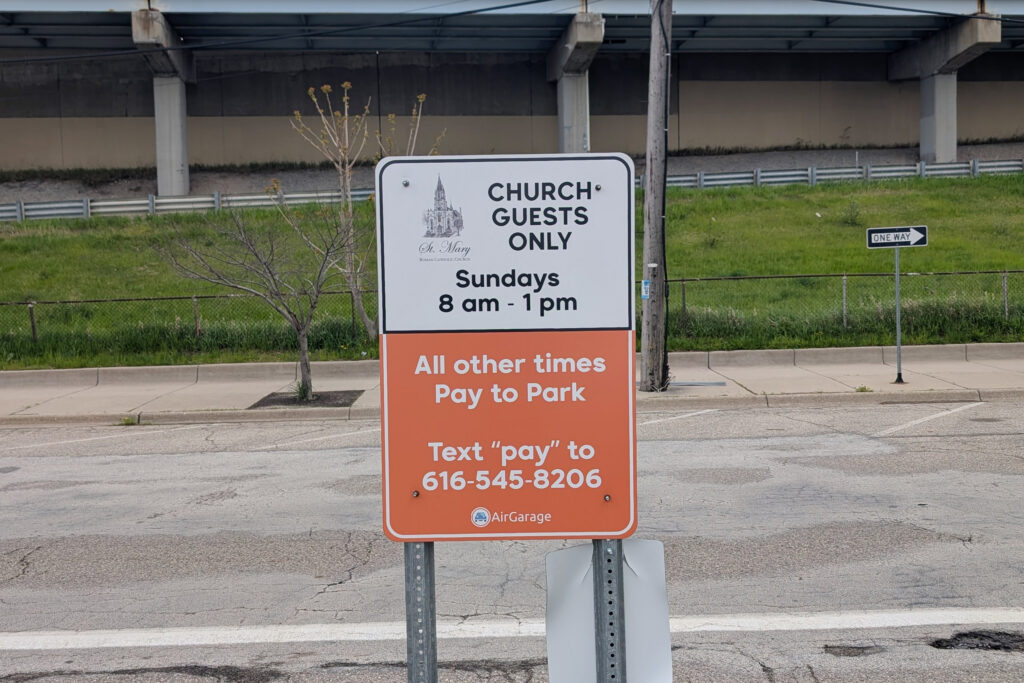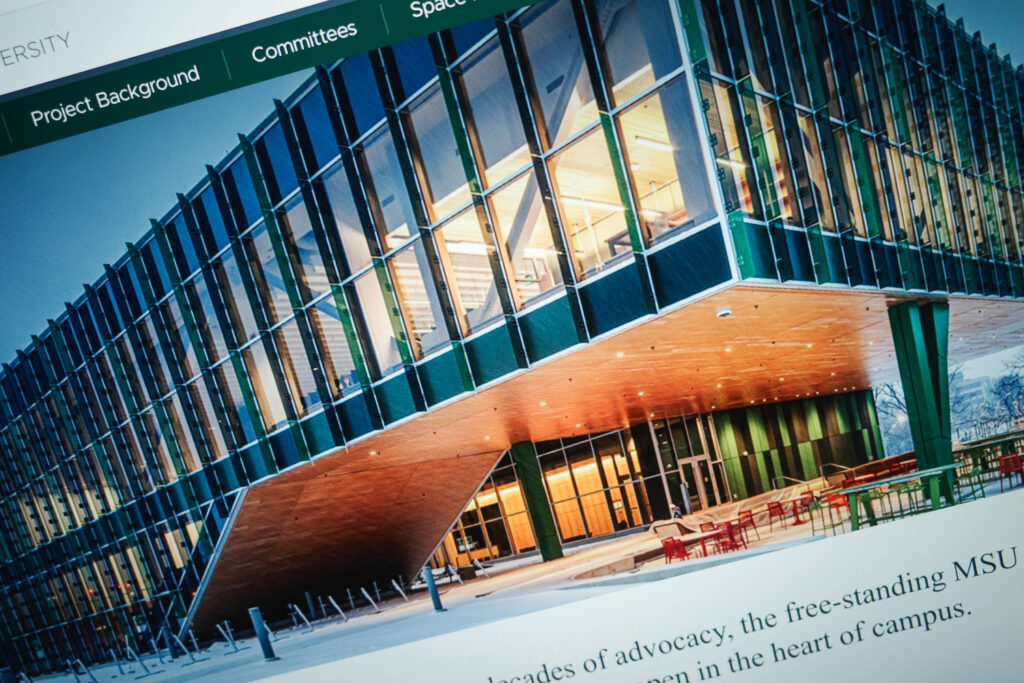Grand Rapids — Go to dinner or drinks in the Bridge Street corridor on the Westside of Grand Rapids and you could find yourself in a dreaded loop, circling for parking. Popular destinations in the area, including New Holland’s Knickerbocker and Meijer’s Bridge Street Market, require a sizable number of spaces for their customers.
As the area continues its growth trajectory, including the soon-to-be-built 8,500-seat soccer stadium, demand for parking will continue to increase. Business owners in the Bridge Street corridor are turning to platforms such as AirGarage or AirPark to put to use empty spaces on their lots for the public to park.
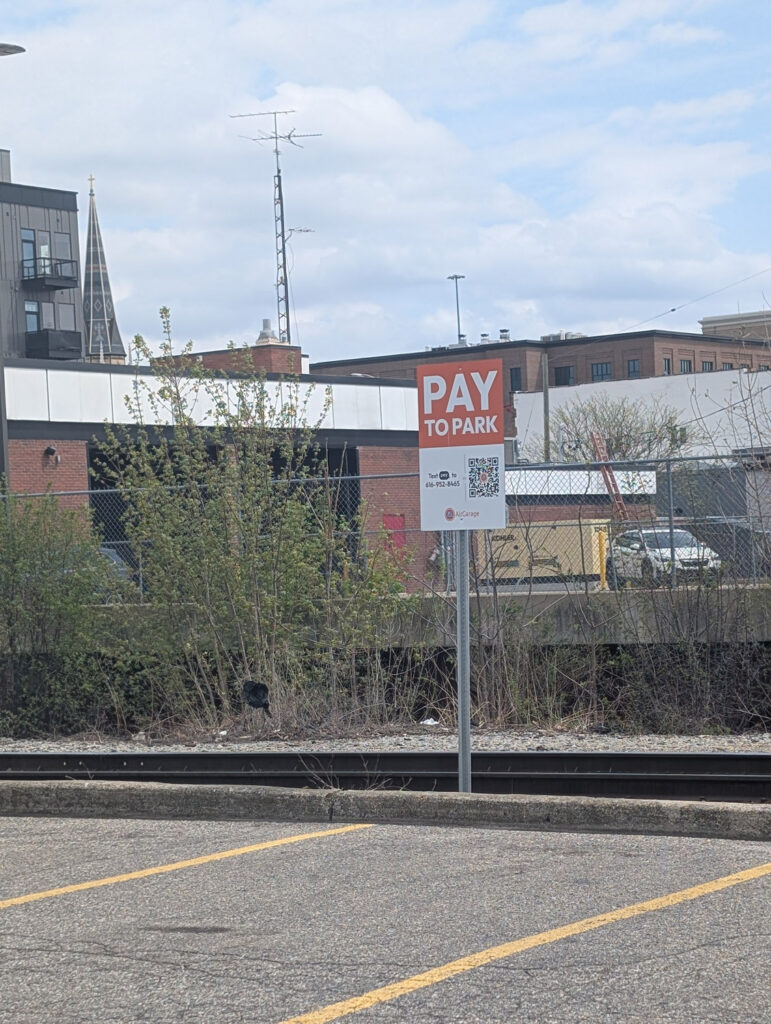
AirGarage bills itself as “helping property owners unlock the full value of their underutilized spaces.” The service, which allows customers to pay on their phone for parking, is a win-win for landlords who would like to get a little extra revenue and a public in need of extra parking.
But new guidance from the Grand Rapids Planning Commission says some of the lots are in violation of zoning codes and could be shut down.
“Adding AirGarage to an existing accessory off-street parking space(s) without proper approval from the City of Grand Rapids Planning Commission is a violation of the City of Grand Rapids Zoning Ordinance,” the commission said in a March 13 planning memo.
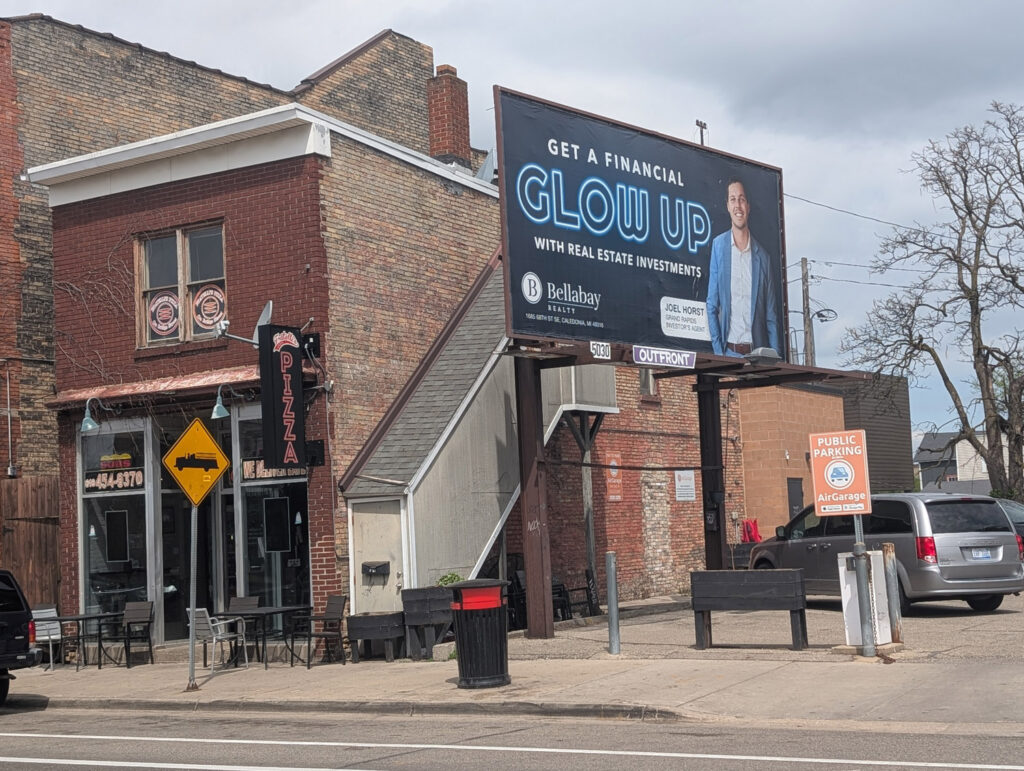
The memo distinguishes between parking lots in secondary use or primary use, meaning lots used for the businesses’ customers or the public. In order to charge the public to park in their lots, business owners must apply for a license, which costs $580.
The yearly fee to renew the license is $160. Crain’s Grand Rapids, which originally reported on the memo from the planning commission, quoted Grand Rapids Planning Director Kristin Turkelson, who explained that the commission would be reviewing lots individually to see which are in compliance.
The Grand Rapids City Planning Commission did not respond to multiple requests for comment on this story.
The Bridge Street Depot building, operated by Advantage Commercial Real Estate, is right next to the train tracks on Bridge Street. It houses law offices, a salon, and a few other businesses. Signage from AirGarage identifies that the lot provides public parking after 5 p.m.
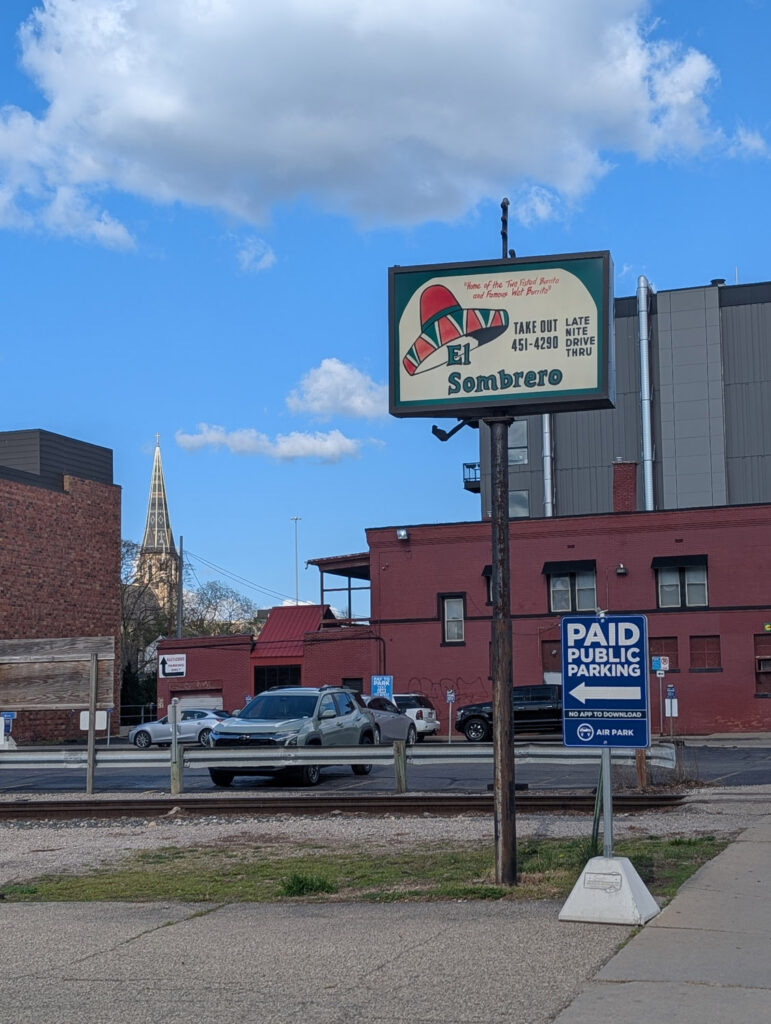
But if you try to pay, an error reading “Not Found” pops up. I called Advantage to find out exactly why the lot was closed, but didn’t hear back. An owner of one of the tenant businesses confirmed that the lot would soon be closed to the public and a gate put up.
Walt Gutowski, owner of Swift Printing, has used AirGarage’s services for five years, in multiple lots, and believes he was the first in the neighborhood to do so. The service solved a multitude of problems for him in operating the lots.
“We’ve had a history of a lot of work to maintain the parking lot, particularly parking gates,” Gutowski said.
He added that people would drive through the gates at 2 a.m. during the winter. Now there are no gates on the lot.
AirGarage uses cameras to track who has entered the lot and a lean team of attendants to police non-paying drivers. The company handles maintenance and trash pickup for the lots. Gutowski also appreciates the transparency of the fees, both to the lot owner and the public.
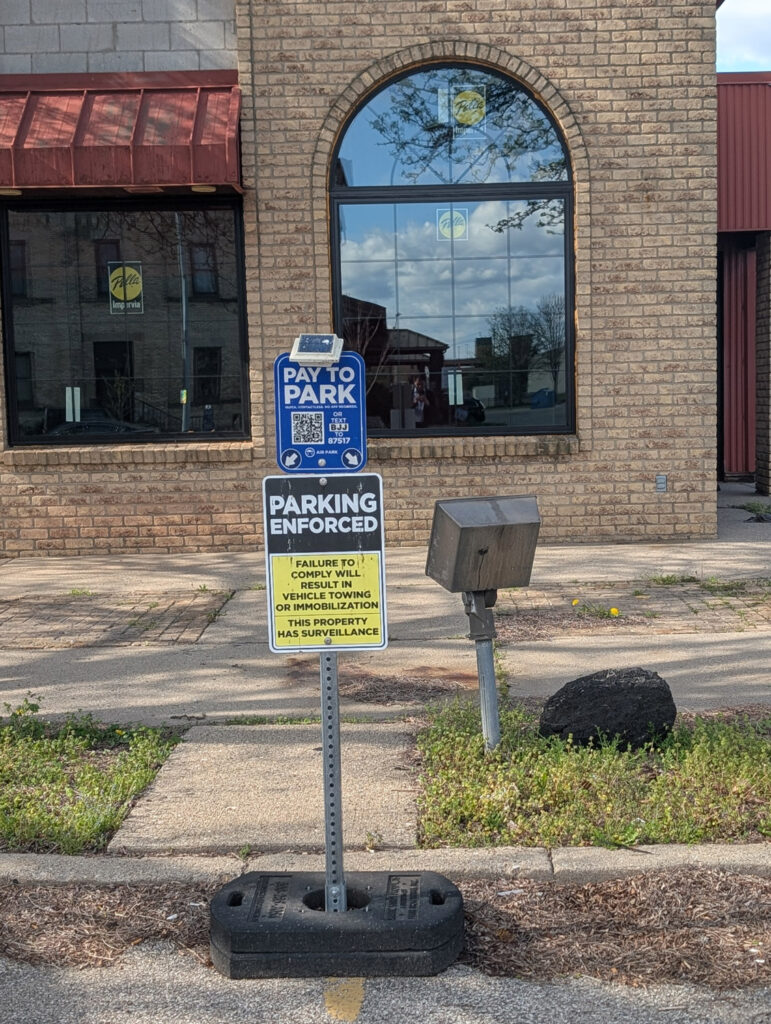
“It’s a benefit to a number of our tenants who own eating establishments,” Gutowski said. “This allows a very easy way for people to park.”
Because his lots were zoned with the city for paid parking before he started using AirGarage, Gutowski’s lots will remain open.
Customers also appreciate the service. I caught a woman as she was heading to Knickerbocker for a party. She was paying for parking through AirGarage on the small lot on Bridge Street by Fratelli’s Pizza.
She was using the service for the first time but navigated the platform easily and completed the process in around 30 seconds. She said the process was smooth, although she would have liked to pay less.
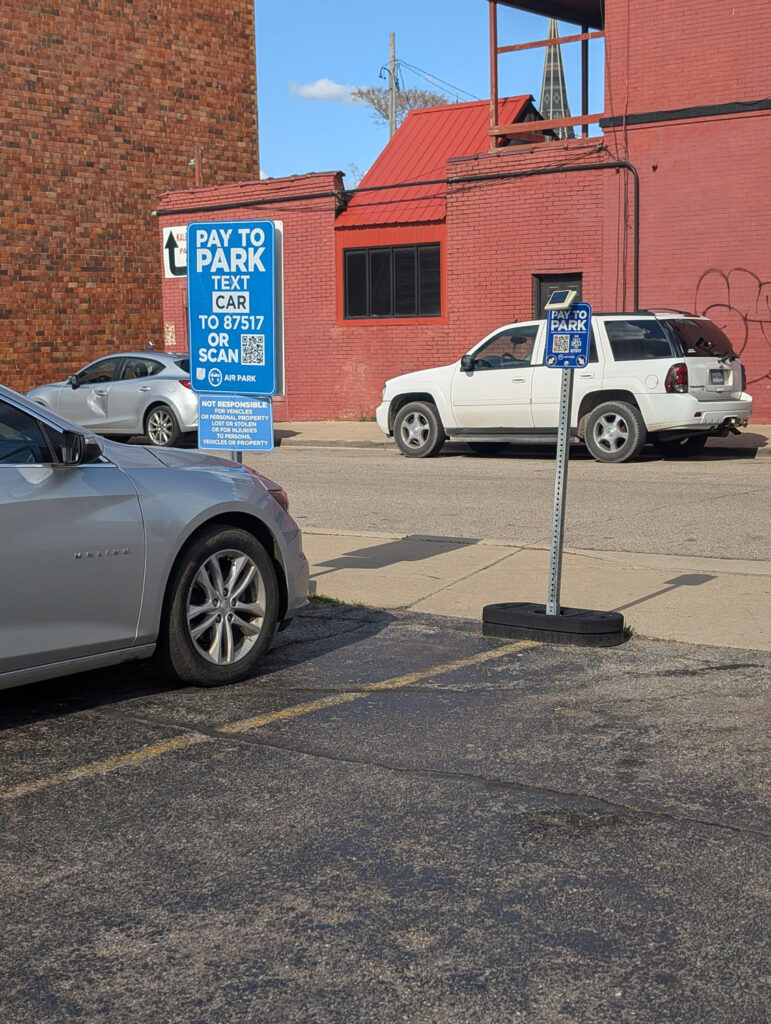
Are the closures threatened by the city commission an overreaction? After all, who was being harmed by the unauthorized public lots? These were properties already being used for parking during certain hours, which in some cases were just extended to serve the public.
This case shows the importance of nimble zoning laws, especially as new technologies offer options for managing properties.
One unfortunate outcome of this crackdown could be more private, gated lots in the Bridge Street area, and fewer places to park. What a self-inflicted wound that would be. Cities like Grand Rapids must adapt or risk causing larger problems than the ones they are trying to solve.
Noah Gould is alumni and student programs manager at the Acton Institute and a contributing writer for Michigan Enjoyer.
